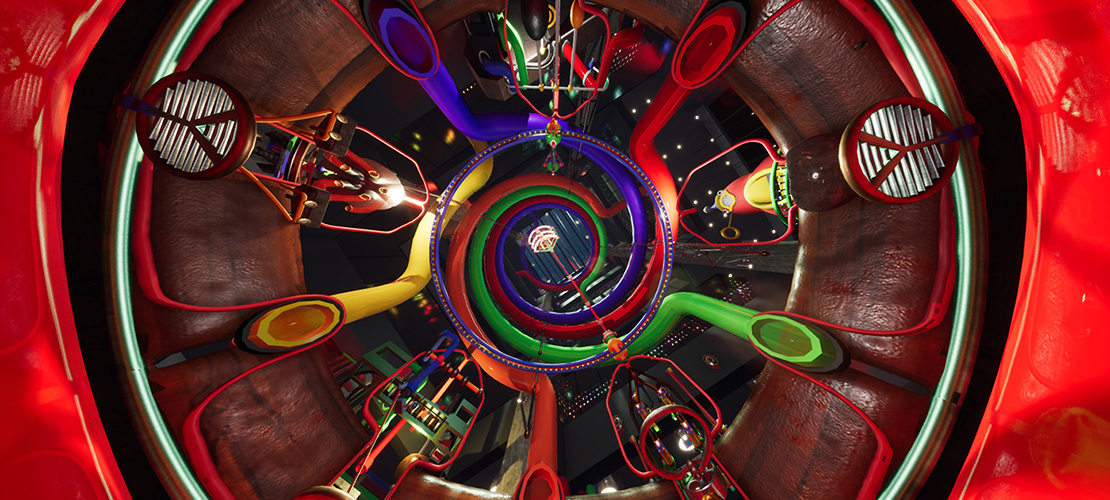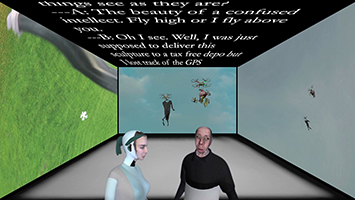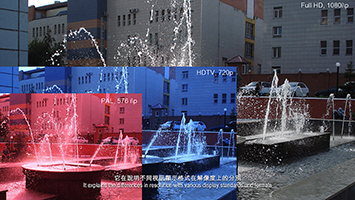

玩站、中華未來主義 (1839-2046 AD)
Play Station, Sinofuturism (1839-2046 AD)
2017,單頻錄像,7分50秒、60分
Single-channel video, 7'50", 60'00"
陸明龍
Lawrence LEK
英國 1982年生於德國法蘭克福,現於倫敦生活與工作
UK 1982 born in Frankfurt, now living and working in London
作品《玩站》中,陸明龍以一個VR遊戲探討了後工作社會的未來矛盾。定於公元2037年的時間點,以科幻的形式在倫敦市中心內設立了一個名為「遠見」的科技公司。「遠見」公司是領先世界數位自動化公司,訓練員工外包工作,並以獨有的娛樂型式或是線上假期作為相應獎勵。《玩站》反映了勞動與遊戲之間不斷變化的邊界,人們的對於娛樂的高強度需求與強烈成癮,同時也探討了另種更透明也更不可見的支配模式。
而《中華未來主義(1839-2046 AD)》描述的是一件看不見的行動,一道早已埋入千萬工業產品、億萬個體及各種敘述中的意識形態。《中華未來主義(1839-2046 AD)》是個錄像論文結合了科幻小說、紀錄情境劇、社會現實主義及中華宇宙論,進而批評今日中國各地人們所遇到的一些困境。中國未來主義以非洲未來主義及海灣未來主義作為一個平行案例,提出一種包納著批判與遊戲的方式,企圖顛覆傳統文化的陳腔濫調。在西方媒體與東方主義的觀念中,中國是異國情調的、怪奇的、媚俗的與廉價的;而在中國媒體中,則是被描繪成英雄式的、穩定的、淵遠流長的、宏大的與統一的。《中華未來主義(1839-2046 AD)》提倡將他們向前更極致地推展,藉由七大中國社會的刻板印象(計算、複製、遊戲、念書、上癮、勞力及賭博),展現了中國技術的發展如何被視為一種人工智能的展現形式。
In the work Play Station, Lawrence Lek discusses the paradox in a future post-work society via a VR game. The time is set in 2037 in a Sci-Fi world, in which a technology company “Farsight” is established in downtown London. “Farsight” is a world-leading digital automation company, training employees to outsource their jobs. In return, the employees can enjoy exclusive entertainment or e-holidays based on their performance. Play Station reflects the ever-changing borders between labor and game as well as people’s high intensity of demand in and serious addiction to entertainment, while investigating other more transparent and more invisible pattern of domination.
As for Sinofuturism (1839 - 2046 AD), it describes an invisible movement, an ideology that has been embedded into millions of industrial products, billions of individuals, and all sorts of narratives. Sinofuturism (1839 - 2046 AD) is a video essay that combines science fiction, documentary melodrama, social realism, and Chinese cosmologies, in order to critique the present-day dilemma encountered by the Chinese of all places. Sinofuturism (1839 - 2046 AD) cites Afrofuturism and Gulf Futurism as parallel cases, proposing a mean that encompasses criticism and games in an attempt to overthrow the clichés of the traditional culture. In the eyes of the Western media and orientalists, China is exotic, strange, kitsch, and cheap, whereas in the eyes of the Chinese media, it is heroic, stable, historic, grand, and unified. Sinofuturism (1839 - 2046 AD) proposes to take them further. By embracing the seven stereotypes of Chinese society (Computing, Copying, Gaming, Studying, Addiction, Labor and Gambling), it demonstrates how China's technological development can be seen as a form of Artificial Intelligence.







